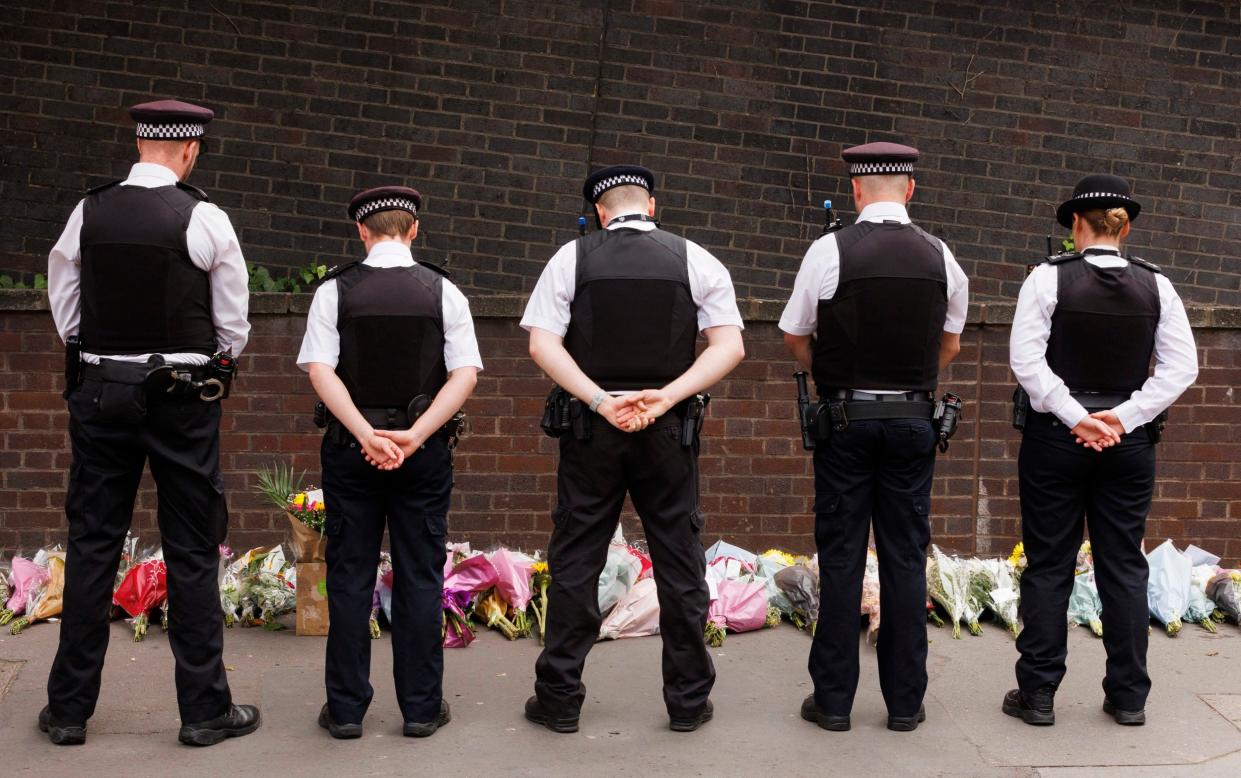A demoralised police force cannot properly tackle crime

- Oops!Something went wrong.Please try again later.
The death of 15-year-old Elianne Andam on her way to school in Croydon, south London, has intensified public concern over the safety of our streets. Last year police in London recorded almost 13,000 knife offences, an increase on the previous 12 months and the reversal of a downward trend seen before the pandemic.
The fall after 2019 followed a change in stop and search powers. Sajid Javid, the then home secretary, made it easier for officers to search people without reasonable suspicion in places where serious violence may occur.
Inevitably, campaigners tried to prevent this policy happening, arguing that stop and search is “not effective” and targets black people disproportionately. Yet it is the young people of the black community who are proportionately most likely to be the victims of knife crime.
The more police powers are circumscribed, the greater the likelihood that the gangs and thugs will fill the vacuum and youngsters in their areas will think that carrying a weapon helps protect them. We need the police to keep order, yet they are constantly being undermined by endless inquiries and accusations of misconduct.
The BBC led its news bulletins yesterday with another attack on the police for failing to wear personal cameras properly, seemingly oblivious to any connection with the next item about the murder of Elianne. Meanwhile, armed officers in London have handed in their guns after one of their number was charged with murder. Another faces the sack eight years after a shooting incident despite being cleared of any criminal wrong-doing. A demoralised police force is a weakened one. The consequences should come as no surprise.

